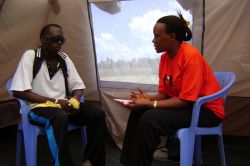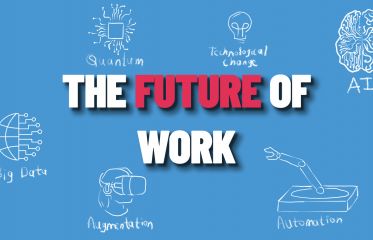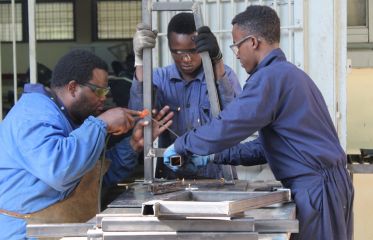It’s interesting to me that we often ask young people, “What do you want to be when you grow up?” when we don’t really provide the resources or support for them to know the answer. So, when students are faced with choosing a career path in high school, the often lack the knowledge and tools to do so.
Some young people have a natural career calling, but most high school students aren’t sure what their career interests are—and those who DO have a career interest often don’t understand WHY they’re interested.
Many inherit a career path from a parent, sibling, or successful relative—“Oh, yeah. Uncle Pete has done great as a chiropractor, so I’ll do that!” Others hear about a hot career area with plenty of opportunity and a good salary.
I’m not saying these reasons for choosing a career aren’t valid, but there are other factors to consider and explore—and high school is the best time to get started.
Benefits of developing a career mindset in high school.
Developing a career mindset helps high school students focus on specific career interest areas so they can begin putting their own plan together for a successful future.
In my work with hundreds of high school students, I’ve seen that time, effort, and focus put into career exploration activities helps grow self-awareness. It’s also a huge confidence builder, even if your goal isn’t choosing a career path in hight school.
Let’s look at the three keys to building a career mindset with what I refer to as the “3 Cs: Curiosity, Clarity and Confidence.” (These will also help when choosing a career path in high school.)
CURIOSITY
Many of the high school students I work with aren’t very curious about careers. Most of them are focused on college, and due to the pressure of the process, they don’t have the time or energy to put into thinking about careers.
Why? Because careers seem very far away.
College is the next big milestone, not a career, so that’s where their energy goes. Even if they do have an interest in exploring careers, there aren’t many resources out there to support the in-depth process of learning about career areas. Plus, high school students are so busy now, creating the time and space for this sort of career exploration is challenging.
The idea of thinking about a career when you’re still in high school is also scary. Many students don’t know how to start the process, so they put off thinking about it for the future with the idea that they’ll “figure it all out” in college.
Sometimes that happens, and other times students just hope a dream career will magically come to them—but without exploration and a process for setting up a career plan, quarters, terms, and years can go by without any clarity on career direction.
When students become self-aware and begin to create a career vision, they start noticing things that fit into that vision.
For example, when an average young person meets someone who works in a possible career of interest (like a friend’s parent), they usually don’t think to ask about it—but a teen with a career mindset just might ask to sit down for a talk to learn more about this career.
By starting this process in high school, students will have more time to get curious about careers, to notice their areas of interest, join clubs, consider programs, and make connections in pursuit of career options.
CLARITY
Having clarity on two to three strong career interest areas based on self-awareness is extremely helpful for young people.
The high school students I’ve worked with in my workshops often want to come away from their time with me with that ONE perfect career.
Unfortunately, it doesn’t work that way. We know, and research indicates, that millennials will have an average of 11 jobs in their lifetime—and half of the jobs that will exist 10 years from now, don’t even exist today.
So instead of planning for that single perfect career, I recommend students develop a career vision—a vision that:
- Works and grows with them over time as interests change and new options are discovered
- Provides a foundation to work from and build on that serves as a guide in their exploration
- Allows for a collection of self-knowledge, patterns and themes that provides a decision making platform as new careers or college majors are considered
The opportunity to explore two to three careers prior to college can also potentially save families a lot of money because it can result in fewer college major changes.
Current statistics show that:
80% of college students change their major at least once, and on average they change their major three times over the course of their college career.
I was surprised to learn that a recent ACT study in November 2013 found that:
Only one out of three students who took a recent ACT college assessment test intended to major in a subject that was a good fit for their strengths and preferences.
Currently, the average time it takes the majority of students to complete their college degree is 5.5 years. Reducing that time by even one semester saves considerable money.
“Picking the wrong major can be an expensive mistake. College students whose majors don’t reflect their interests are less likely to graduate on time and more likely to drop out,” -Steve Kappler, ACT Assistant Vice President
This is yet another reason why it’s essential to begin gaining clarity around career interests in high school.
CONFIDENCE
A high school junior who recently completed one of my workshops provided this feedback on the value of the career exploration activities we worked on together:
“By having a better understanding of myself, I now have more confidence in pursuing a career.”
—Inglemoor HS Junior
One of the biggest benefits of career awareness and exploration is an increase in confidence. The great feelings that come from knowing themselves better, having more clarity around career interests, and creating a plan all add up to students feeling more confident in their future.
Research from the Stanford Center of Adolescence Study “Exploring Association between Adolescent Work Goals and Positive Outcomes” shows that:
Young people who actively sought information about their identities were more likely to report higher optimism and self-esteem.
So helping students increase their self-awareness, and encouraging them to invest time and energy in career exploration to gain clarity and create a plan while still in high school is great for boosting confidence.
The next time someone asks these young people what they’d like to do when they grow up, they’ll have a career vision and plan to share, discuss and get input on






























